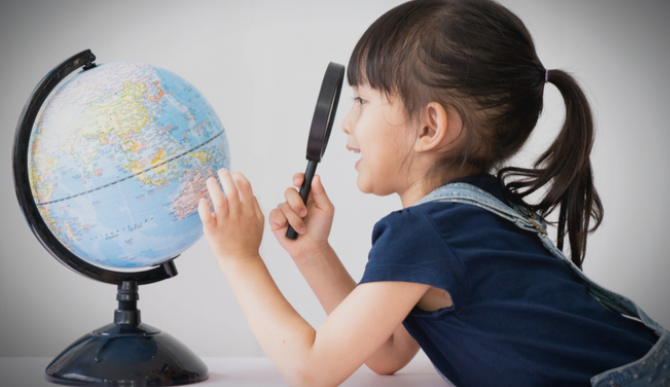There is a big difference between learning and raising children, even though they cannot actually live without each other.
The responsibility for learning lies primarily with the school and the responsibility for raising children lies primarily with the parents. Learning at school mainly happens because the children listen to what the teacher explains to them. Then they can try it themselves. Parenting, on the other hand, is an ongoing process in which children mainly receive instructions about what can be expected of them, but also constant feedback on their actual behavior. To be clear: learning does not stop outside the gates of the school and education does not stop outside the parental home. Children can learn anytime and anywhere, including from their parents, grandparents, babysitter, just neighborhood children or from their own experiences, including mistakes. In addition, the school also has a role in education. For example, when teaching discipline and good behavior towards other people, etc.
Don’t solve everything yourself
Children do not benefit from parents who solve everything for them, if they could do it themselves.
Does your child not yet know how to zip up a jacket, how to tidy up his room or how to settle an argument with a friend? Let us try to solve it yourself first. If that doesn’t work, you can help them out yourself. Explain what you do and that ultimately they can do it themselves. Don’t be too quick to say “you can’t do that yet”. That certainly doesn’t build self-confidence.
Learn to share tasks and responsibility
Toddlers and preschoolers especially enjoy it if you involve them in everyday family chores, such as setting the table. From a certain age you can also give them a specific task in the household. Their own role, with a very small amount of responsibility. And this does not necessarily have to be organized and always involve the same tasks.
Don’t always let your child win
A very nice way to pay attention to your child is to play games together. It is tempting to make your child happy by letting him win in a game. You then enjoy that smiling face and that exuberance at the success achieved. But also let the child deal with loss. After all, why would you miss an opportunity to prepare your child for the fact that he or she will not always win “in real life”? Make sure your child becomes familiar with both experiences, winning and losing.
Your child may be bored
Raising a child well is not the same as entertaining a child all the time. It is no problem if your child has nothing to do. This allows it to independently discover the world around it. Just look at how active a baby in a playpen often is on its own. In a way, it even encourages creativity.
Empathy
Sometimes children have difficulty understanding the behavior of others. For example, when you have to wait a long time at the checkout, at the doctor or at an amusement park. Explain why that is so that your child will show more empathy and respond more kindly, especially in a difficult situation. Often children only know one good way to do something, and that’s their way! Teach them that there are often multiple solutions for something and sometimes even more creative ones. For example, that you can also use an upside-down bucket as a chair or that you should not take a bicycle from another child, but can simply ask. Explain that others may handle some things in their own way. Children who share with others or do something for someone else learn that giving pays off. Teach your child that everyone can make a difference in their own way: by helping to collect old toys and clothes, by helping to clean up the playground and the like. If a friend comes to play, your child may find it difficult to share his toys. In that case, it may be useful if the visiting child brings along toys that your child can play with for this occasion.
Set a good example yourself
If you want your child to have respect for others, you must first and foremost have that respect yourself. Show respectful behavior towards those around you. Do you sometimes wait your turn decently, adhere to the (traffic) rules and do not leave any rubbish behind in the forest or on the beach? Children copy your behavior. What you find important, they will also find important.
Provide enough quality time
It is important that your child experiences the family as a priority. A problem for working parents is often that they have little time for their children. But it is important to spend enough time together as a family in the same space. In families where family feeling or being together is a priority, children are on average less anxious and have a happier outlook on life. Creating enough space for real family togetherness can be quite a challenge, especially in this day and age where distractions from social media are always lurking.



